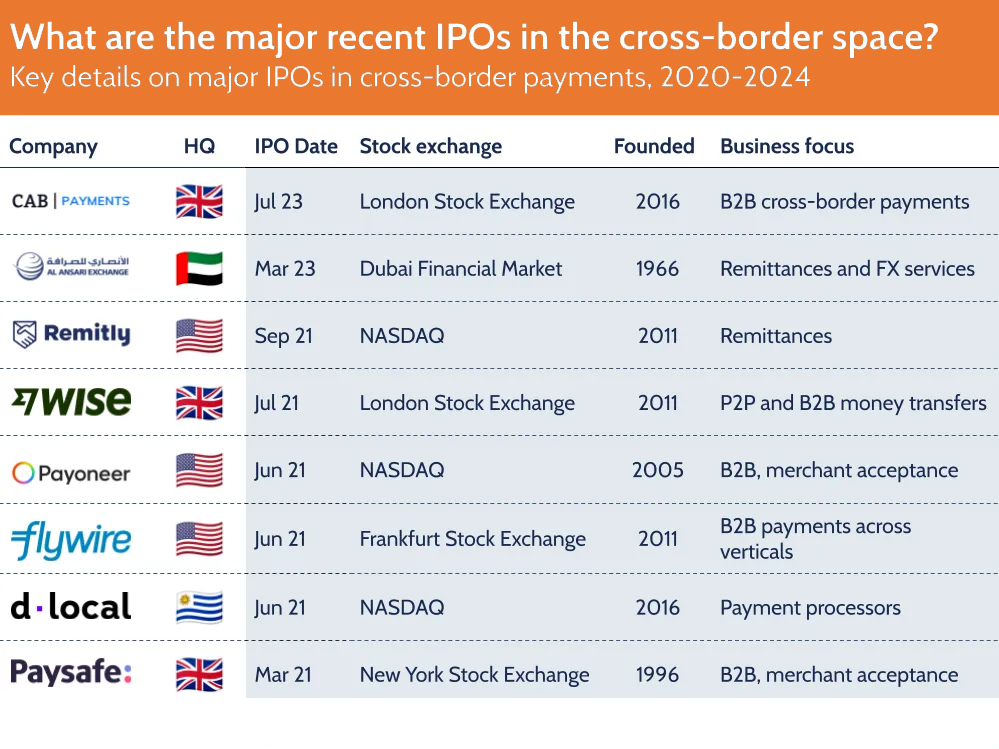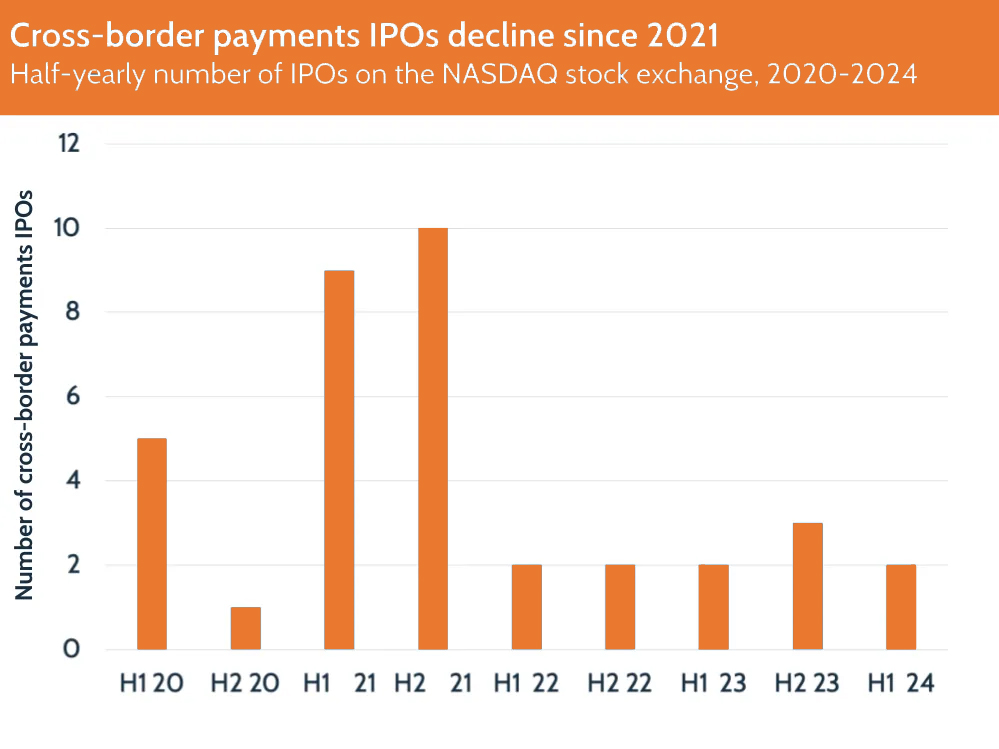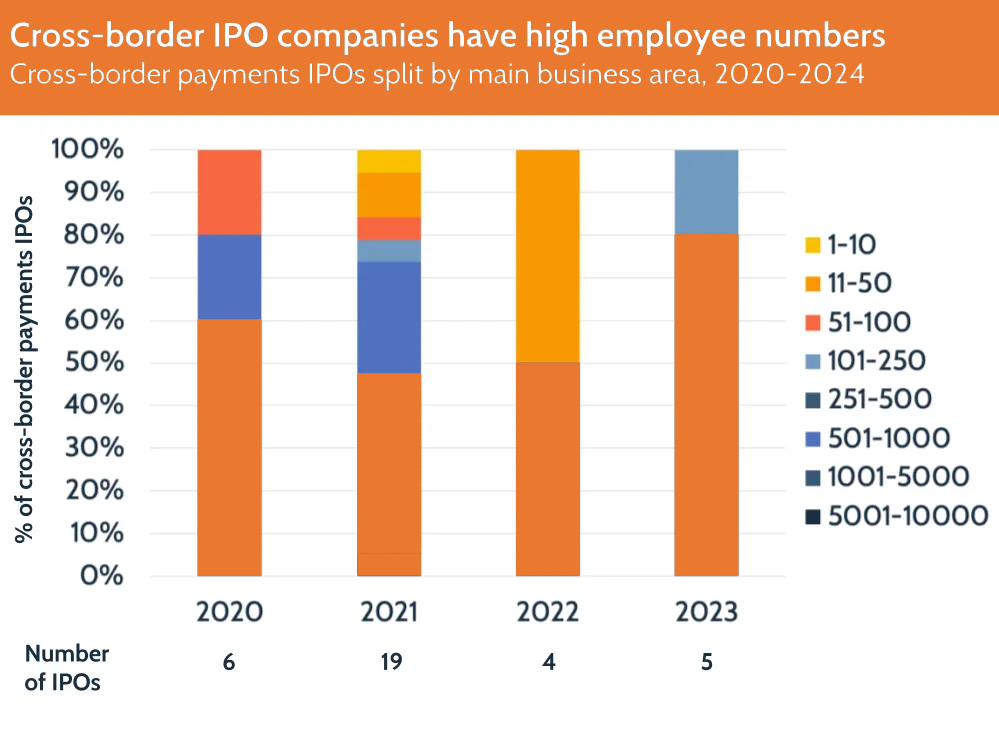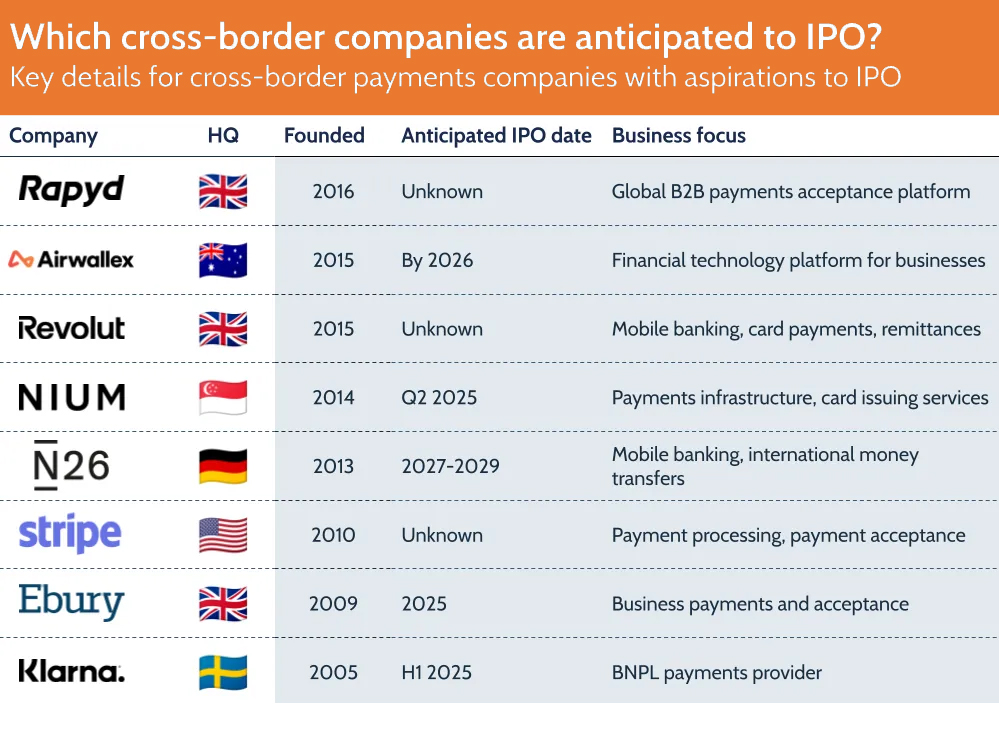
What is The IPO in the Global Business
Arena?
Hey! Are you
scratching your head over the terminology called IPOs? IPOs are the term used
for companies selling their shares to widen their investor base globally, and
it not only helps them expand capital but also improves global visibility. Like
other sectors, the cross-border sphere also has a reasonable share of IPOs with
ups and downs over time, and this is what this write-up will unearth, helping
you to hunt possible ways of investment in this specific sphere.
Causes behind
Declined IPOs in 2023
With dozens of IPOs
declining in 2023, financial experts doubt whether 2024 will succeed in IPOs in
all sectors, including the cross-border money transfer sphere. While evaluating
further, you notice factors behind declined IPOs are an unbalanced economic
landscape, massive interest rates, growing inflation, and geopolitical issues.
After a significant
acceleration of IPOs in the early months of 2020, many companies have since repelled
taking initiatives for IPOs amid an unstable investment environment. Yes, this
shaky financial stability also jolted the remittance world as it didn’t
continue venturing into more public listings despite having massive IPOs in
2021.
Growth
Predictability of IPOs up to 2025
However, with the
central bank squeezing interest rates and companies generating sensible probabilities,
the IPOs tend to progress up to 2025. In this regard, the BNPL payments
provider Klana is all set to acquire consultancy services from central banks
such as Morgan Stanley, Goldman Sachs, and JPMorgan.
If IPOs sustain
their progressive journey in the remittance space, there will be an influx of
remittance companies towards IPOs such as Remitly, Flywire, Wise, Payoneer, and
dlocal.
Remittance Companies Listed
Publicly in Recent Years

The year 2021
witnessed massive companies’ IPO activities at a similar time with different
focuses. For instance, Wise & Remitly was determined on consumer money transfers
and remittances. Payoneer, with the mission of going public via a SPAC deal,
was determined for cross-border e-commerce. The Flywire handled cross-border
payments in education, B2B healthcare, and travel niches, and IPOs are heading
in the right direction.
Then, the
cross-border payment landscape is about to witness many other newly emerged
remittance companies adapting to IPO growth strategies. Actual remittance
companies that opted for IPO were not only for massive cash injection but also
for getting more global exposure. For example, Wise joined The London Stock
Exchange through straight listing without hunting for capital, which accomplished
the company’s goal of going international.
Analysis of Remittance IPOs from
2020 to 2024

From the beginning
of 2020 to June 2024, 5,200 IPOs were listed on Crunchbase across every sector,
with just over 100 of them linked to payments. More than 30 companies either
focused on cross-border payments or made it an essential part of their
offering, specifically manifesting cross-border payments on their sites.
Several cross-border payment IPOs have been on a downward spiral since 2021 but
have remained stable on a half-yearly basis for the last two years.
High Employee Numbers of Cross-Border IPO Companies

While evaluating
cross-border payment IPOs from the perspective of a higher number of employees
by the companies involved in IPOs, you witness a massive number ranging from
101-250 to 5000-10,000 employees. Interestingly, more than half of the
companies already had over 10,000 workers when they started their IPO journey.
While digging more, you also explore how companies with smaller numbers dived
into the sea of IPOs such as AppTech.
Furthermore, most
companies that opted for IPO business strategy are based in the USA, followed
by the UK & India, and some remittance companies went to get listed on
stock exchanges outside of where they are situated. For instance, UK-based cross-border company Paysafe was
listed on the New York Stock Exchange, and according to financial experts,
listing abroad helps a company’s expansion strategy by attracting new customers
in new markets.
Companies that Can Announce IPO in the Future

Having witnessed the
positive outcomes of venturing into IPOs, companies are gearing up to get into
it; thus, the remittance world will witness lots of IPO activities, benefiting
this particular sphere from a larger perspective. In this journey of IPO
venturing by remittance companies, you witness Revolut being very passionate,
and its recent report of 2023 reveals the company’s revenue of 95% worth £1.8bn.
The company is determined to align its financial processes with those of the
publicly listed companies.
Similarly, the CEO
& Co-Founder of Rapyd Arik Shitlman told TechCrunch that B2B payment
providers were gauging factors like market conditions, potential funding, and
investor motivation when going public. Furthermore, Stripe's recent drive to
grow profit has dampened the need to opt for an IPO, emphasized by the
company’s CEO & president John Collison's statement of “no rushing to go
public” to Financial Times.
Wrapping It Up
Yes! Extra cash
injection through IPO helps companies pay off their debts; for instance, Nuvei
aimed to ensure its return on its M&A practice by rewarding its workers
with great stock options. While IPO paves the way for companies to go public
and raise funds, hurdles such as strict cost regulation, the requirement of manifesting
quarterly profits to invests, and the enhanced public scrutiny are dampening
companies’ move to integrate into IPO business strategy, and that needs to be
catered for the IPO-led cross-border payment companies on a larger scale in
upcoming years.
The massive IPO activities in the forthcoming years, particularly in the remittance landscape, will encourage ordinary people more to invest safely in remittance companies they use to transfer funds. Furthermore, when sending money to Pakistan, India, Bangladesh, Nepal, and the Philippines from Australia or Singapore, you should consider Speed Remit the most reliable and encrypted option to transfer funds.



